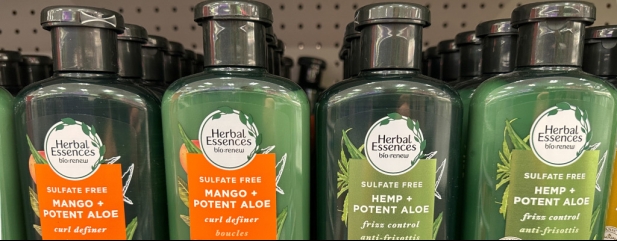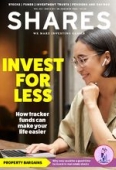Archived article
Please note that tax, investment, pension and ISA rules can change and the information and any views contained in this article may now be inaccurate.
Could Procter & Gamble’s latest update spell trouble for its UK rivals?

US consumer health and hygiene giant Procter & Gamble (PG:NYSE) delivered what initially looked like a positive set of second quarter results, beating revenue estimates and increasing its full year organic growth forecast.
However, P&G shares fell to two-month lows as investors were spooked by falling sales volumes and a continued rise in input costs.
Despite meeting Wall Street estimates with earnings per share of $1.59 and slightly beating sales forecasts, the firm revealed a 6% drop in second-quarter volumes driven by falling consumption and a big hit to margins from increased raw material costs and a negative product mix.
The firm also said given ‘continued significant cost headwinds from commodity and materials costs’ and foreign exchange impacts, it expected earnings per share to be towards the lower end of its guidance range for the current year.
The question investors will be asking is whether UK firms such as Unilever (ULVR) and Reckitt (RKT) can avoid the same pitfalls when they report in a couple of weeks’ time, and even if their results are good will the shares respond positively?
In October, Unilever posted a forecast-beating 10.3% increase in third-quarter sales due to record price increases and raised its full-year revenue growth guidance to ‘above 8%’, so that is the first figure investors will scrutinise when the firm reports its annual results on 9 February.
Price hikes came at the expense of unit sales, which declined 1.6% in the quarter, and the company braced the market to expect ‘more negative underlying volume growth’ in the final three months of the year.
Chief executive Alan Jope also maintained his target of a 16% operating margin and guided investors to expect the return on sales to rise further this year due to strong pricing, an improved product mix and cost savings, so the margin outlook will be just as important as the results.
Reckitt also delivered better than expected third quarter sales and predicted full year revenue growth would be at the top end of its 6% to 8% range of guidance.
Price and product mix improvements of 12% came at the expense of a 4.7% decline in volumes and meant overall revenue growth slowed sharply from the second quarter, although the continuing strength of the US dollar provided a further tailwind to sales when reported in sterling.
When Reckitt reports on 17 February, as well as the top line investors will be looking to see how much further costs have risen as the firm has repeatedly cautioned higher input prices will affect its profit margins.
Important information:
These articles are provided by Shares magazine which is published by AJ Bell Media, a part of AJ Bell. Shares is not written by AJ Bell.
Shares is provided for your general information and use and is not a personal recommendation to invest. It is not intended to be relied upon by you in making or not making any investment decisions. The investments referred to in these articles will not be suitable for all investors. If in doubt please seek appropriate independent financial advice.
Investors acting on the information in these articles do so at their own risk and AJ Bell Media and its staff do not accept liability for losses suffered by investors as a result of their investment decisions.
Issue contents
Exchange-Traded Funds
Feature
- Why a £100,000 limit on ISAs is a bad idea
- Why InterContinental Hotels is turning investor heads
- Why real estate stocks could be a good bet for the medium term
- Emerging markets: Chinese reopening, a big renewables push and an earnings recovery
- Why emerging markets could be on the cusp of a green revolution
Great Ideas
News
- Thungela loses its crown as coal prices fall back
- Could Procter & Gamble’s latest update spell trouble for its UK rivals?
- Expert predicts further bad news for popular investment trust Scottish Mortgage
- Activist investors give big boost to Salesforce and Restaurant Group
- How Saga shares have more than doubled in three months
 magazine
magazine








